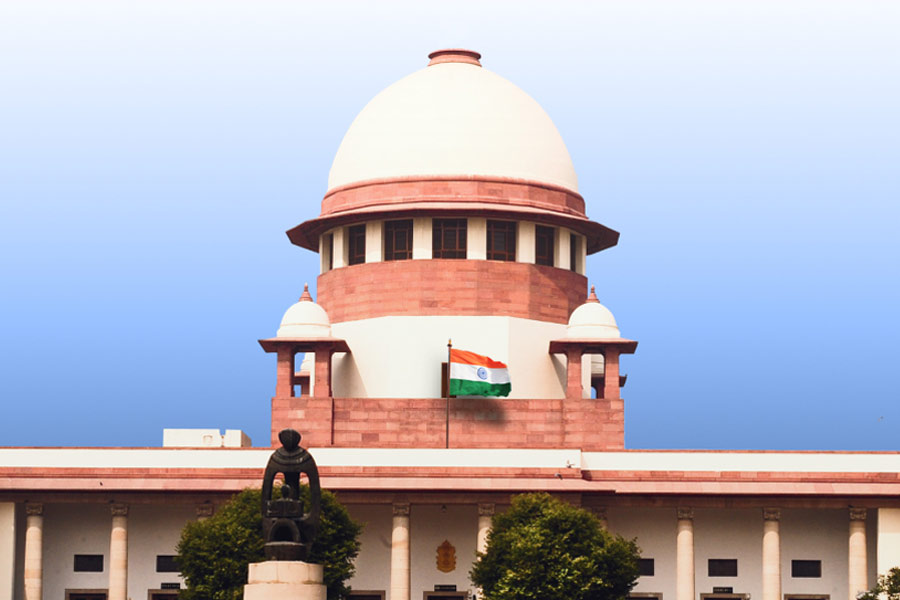Police can “under no circumstances” be allowed to take possession of citizens’ immovable property, the Supreme Court has ruled, setting aside such a bail condition imposed by Madhya Pradesh High Court and terming it “onerous”.
Such police action will lead to “lawlessness” and the “deprivation of civil rights”, the bench of Justice C.T. Ravi Kumar and Justice Sandeep Mehta said.
The bail condition, related to a criminal matter that was a sequel to a civil dispute, impinged on the pending civil suit, the appellants had argued.
The civil case, being heard by a civil court, involves competing claims to a property that appears to be a building of some sort. The claimants (plaintiffs) apparently built a wall before the structure to prevent the other party (defendant in the civil suit)
taking possession.
Later, the claimants were accused in a criminal case of trespass, criminal intimidation and other offences. They were arrested and put in jail custody. Subsequently, their bail plea came up before the high court.
On July 25, the high court granted bail against several conditions, one of them being that the police would take possession of the disputed property, demolish the wall at the expense of the accused, and hand over possession to the other side.
“…The (bail) applicants are already in jail since 27.04.2024 and they have already handed over the possession of the property to the concerned police station. In such circumstances, respondent/ State is directed to remove the wall in front of the gates facing the road at the expense of the applicants, and its keys be also handed over to the complainant positively within a period of 15 days,” the high court order said. It said the accused “shall also bear the expenses of clearing the main gates of the house facing the road”.
The apex court set aside this bail condition, allowing an appeal filed by one of the accused, Ramratan. “…We find that while the second bail application of the appellants was under consideration, it was the police who took possession of the keys of the immovable property…” Justice Mehta, who authored the judgment, said.
“We believe that this action by the police to take possession of immovable property reflects total lawlessness. Under no circumstances can the police be allowed to interfere with the possession of immovable property, as such action does not bear sanction by any provision of law.”
The state of Madhya Pradesh too had assailed the high court order, arguing that while deciding on bail, the high court should not have ventured into the civil dispute by ordering that possession of the property be delivered to the complainant.
The apex court noted that the fundamental purpose of bail (which always comes with conditions) is to ensure the presence of the accused during investigation and trial. Any bail condition imposed must be reasonable and directly related to this objective, it said.
“Therefore, we conclude that the high court has clearly exceeded its jurisdiction… by imposing the conditions of demolishing the wall at the expense of the appellants and handing over the possession of the disputed property to the complainant,” it said.
“In this case, the conditions imposed (are) clearly tantamount to deprivation of civil rights, rather than measures to ensure the accused’s presence during trial. Therefore, the conditions… are hereby set aside.”
It added: “The other conditions (such as bail bonds and sureties) imposed by the high court shall remain in force.”











